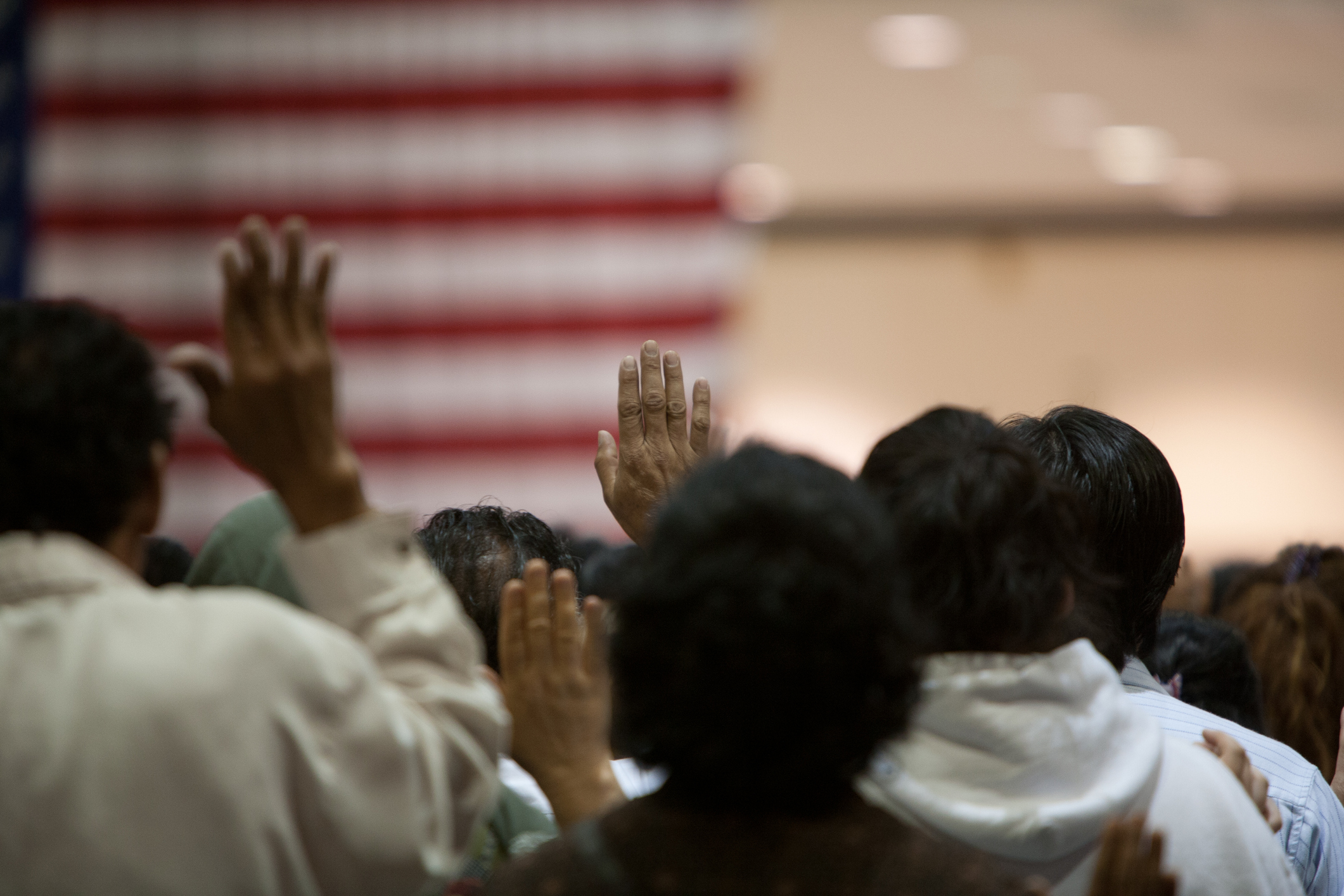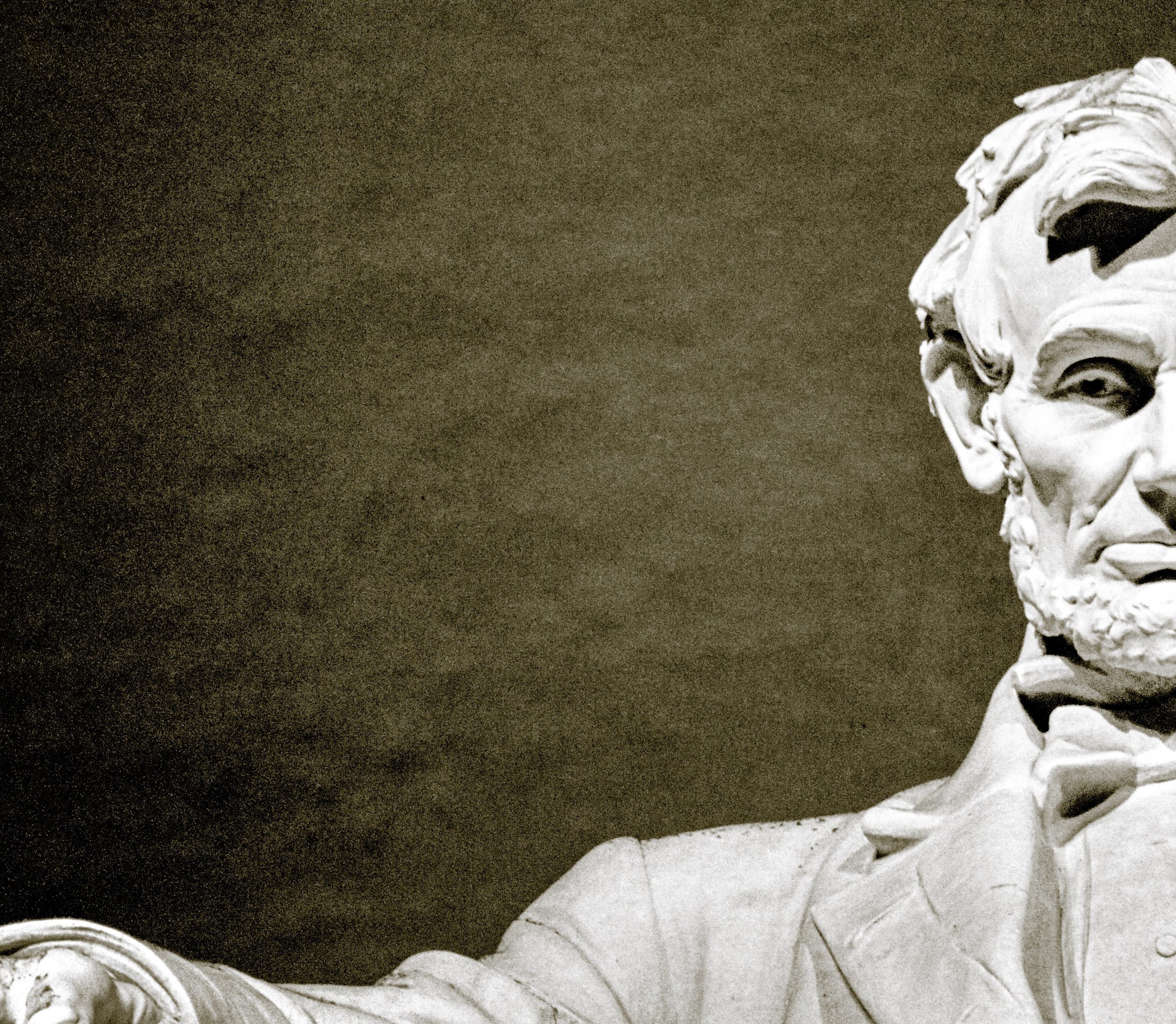Citizenship without the State
A Crisis, but not a Disaster

While the Left attempts to dissolve our republican legacy, its revolutionary demands will backfire.
Glenn Ellmers’ essay “Too Much of a Unity” aims to navigate us through our present discontents by focusing our thinking on the core ideas and principles of the America Founding. The essay rigorously engages the scholarship of his mentor, Harry Jaffa, rooting Ellmers argument in the Aristotelian and natural rights purposes of American constitutionalism. Here we obtain a grasp of how our present constitutional order stacks up to the metaphysical measuring rod the Framers used in creating it. Lincoln’s statesmanship brought this understanding to perfect clarity in his noble deeds and words, crystalizing their work in the equality of citizens under law, as guaranteed by the Declaration of Independence.
Ellmers’ essay is logical, well-argued, bracing, and radical. Such an argument is appropriate as we witness leading business, political, and educational leaders in our country disown our past, disdain many of their fellow citizens, and urge a fundamental reconsideration of one of the architectonic principles of our Union: that individuals possess the fundamental rights of citizenship as human beings and not because of their membership in racial, ethnic, or gender groups. What can republican government look like if the failure to give public assent to “woke” ideology can remove you from your work, school, and political participation? We are slowly finding out. While the full script still remains to be written, the process is incredibly divisive.
Ellmers opens his essay with epigraphs from Aristotle—“The city comes in to being for the sake of life, but it continues for the sake of the good life”—and from Lincoln, the apt “apple of gold” quotation which posits that the Union and the Constitution are “the picture of silver” made to “adorn” the “apple” that is the Declaration of Independence. These are the guides of our constitutional order, the reason why it exists. Does our present constitutional practice support individuals leading worthy and virtuous lives or not? Does it uphold liberty and equality as announced by the Declaration? From these elemental questions, Ellmers sets forth his analysis, agreeing with Lincoln that “If we could first know where we are, and whither we are tending, we could better judge what to do and how to do it.”
Ellmers turns to Jaffa to sharpen our thinking about how to apply these weighty principles to our circumstances. Jaffa viewed America as “the best regime achievable in the modern age,” thought its founding had “theological dimensions,” and wrote that in America “popular government … unites liberty and order, the idea of the Union, and the idea of rule by free elections…” These three elements “resemble the Trinity” of Christianity in their unity. And Ellmers argues they must be held together and be ordered to promoting the conditions for human happiness, lest our regime become unjust and not worth defending. Aristotle’s teaching that the goal of politics is to create noble and virtuous citizens is interwoven with the Declaration’s “Happiness” and “sacred honor” principles to provide a guide for our thinking about the purposes of American order. If our regime is faltering by undermining virtue and noble living, can we still give it the same kind of allegiance?
I don’t disagree so much with the use of Aristotle’s Politics and Ethics; they are, as Jefferson notes, and Ellmers affirms, “elementary books of public right.” But I don’t think Aristotle is the most directly applicable thinker to the American constitutional order, or to the proximate diagnosing of our situation. I agree that if civic institutions break down and form “an impediment to the pursuit of virtue and happiness” then the regime will begin to lose support of its citizens. We have obviously begun dipping our toes into this water.
And Ellmers, strangely, enlists Aristotle to argue that we have too much unity in our regime. Ellmers observes that we are besotted with the fractiousness of relativism, identities, and radical individualism, which exists under a concomitant growing centralization of power in Washington. The federal government increasingly fuses us together in a stultifying egalitarianism. I don’t deny the descriptive aspect here—I’ve voiced similar sentiments myself—but Aristotle as the voice of a worthy heterogeneity is odd given that as a pagan thinker he was unable to see most citizens (excepting philosophers) separating their soul from the comprehensive form of the polis itself. Ellmers notes this but doesn’t seem to grasp its full weight. And this matters in a fundamental sense as we think about our liberties and our personhood.
As Tocqueville beautifully observes, it took God come to earth as man to reveal the fundamental equality of human beings with one another and to teach that the soul reached higher than the state and hence could not be fully formed by it. But this conception of liberty is, per Tocqueville, our most precious inheritance as Americans. And it strongly suggests that liberty is a gift from a relational God to created, relational persons. If we are fundamentally relational beings, then it gives us a better way to think about our freedom as creatures and citizens than only or merely exercising equal natural rights. Constitutional freedom exists to secure the full dimensions of our being, which modern political ideologies of either autonomy or collectivism keep missing because they are unable to locate the depth of personhood. Those dimensions are the relationships and covenants of religion, family, community, work and how these reveal the truth about ourselves. Moreover, this gives us something to be political about at both the state and national levels of government.
Ellmers states “the purpose of the Constitution is to advance the Declaration’s principles of liberty and equality.” The primary purpose of American constitutionalism not only consists of the liberty and equality voiced in the Declaration of Independence but must also be understood for how it shapes and guides our ongoing conversation and debate about how we will be a self-governing people. The Constitution does not begin with a catalogue of natural rights or a statement of human equality—the closest we get to the latter is the equal protection clause of the Fourteenth Amendment—but with the preamble that states the classic five-fold ends of government: to “form a more perfect union,” “establish Justice,” “domestic Tranquility,” “provide for the common defense,” “promote the general welfare,” and “secure the blessings of liberty.” I argue in a 2020 essay in Modern Age that commemorates the fiftieth anniversary of Willmoore Kendall and George Carey’s The Basic Symbols of the American Political Tradition, that Kendall and Carey’s judgment that “the preamble is a lodestar and “symbol of our commitment to republican government and our better ordering” must be heeded if republican government in its amplitude is to be our norm. Why? The burdens of republican government daily press on and require no shortage of prudence, and the balancing and weighing of means and ends. The statesman must resist ideological criteria and be able to draw from the full constitutional history of America in order to make decisions.
And that full constitutional history is really the rub here. Why is the Declaration of Independence a document that can only be understood by high political theory and not placed within a century and a half of preceding covenants and constitutions in America’s history whereby colonies and states declared themselves to be self-governing peoples, committed to law and lawful assemblies who meet and order their communities together? Understanding the Declaration in the light of the history of republican self-government on this continent gives us better insight into a document with multiple parts and aspects. Moreover, a complete reading of the Declaration reveals that it is common law oriented with the grievances against the King submitted as “facts” that judge him to be tyrannical. James Stoner observes that, apart from these facts, the “self-evident truths” of the Declaration’s second paragraph would not really matter or be understood. Secondly, the grievances of common law rights and liberties listed in the Declaration find full redress in the Constitution. This history of a lawful people, recounted in the Declaration is, Stoner notes, a significant reason why our founding doesn’t become a leveling one or anything akin to the French Revolution. Abstract rights and equality did not fully define or shape the minds and actions of our Founders. Finally, our Declaration is partly religious and partly Enlightenment. It refers to the God of the Philosophers (“Nature’s God”) but also to the God of the Bible with references to God as personal and providential, “the Supreme Judge of the world for the rectitude of our intentions.” We can judge this as an early display of debate and compromise consistent with republican government, one that we should build on.
I stress this understanding of our Declaration as part of our self-governing tradition because of the move Ellmers makes in the latter half of the essay. He considers the assertion of states’ rights in support of equal natural rights and closes with theoretical speculations on secession and how we might consider such action. Referring back to the earlier Jaffa-inspired American Trinity of ordered liberty, constitutional union, and free elections, Ellmers notes that it would indeed be “inexcusable” to not “act if indeed elections at the federal level are proving inadequate to secure the common good.” If Ellmers is alluding to the 2020 election as an election that does not secure the common good, then I am at a loss. We speak of an election where an incredibly unlikeable President during a pandemic crisis and economic downturn narrowly lost. This election saw the GOP overperform everyone’s expectations by winning seats in the House and holding the line in the Senate. This does not mention the even more positive showing of the Republicans in state level elections across the country. If this is the factual predicate for Ellmers’ recovery of the principles of the Kentucky and Virginia Resolutions, circa 2021, because the inner unity has now been broken, then perhaps an overly narrow theory is leading him towards bad practical suggestions.
Ellmers states that “Circumstances in the coming years may require new or unusual means to secure the ends of liberty and justice. Our thinking must be appropriately radical.” Of course, if by “radical” Ellmers means that we should return to the sources and understand who we are as a constitutional people in order to deal with the latest leftist arguments and policies, then by all means let our thinking be “appropriately radical.” But if, as I sense, Ellmers also means to countenance extra-constitutional measures like nullification or even secession, albeit in the name of equal natural rights—he conditions his remarks as “theoretical speculation”—then he takes matters too far.
Ellmers quickly turns to the actions that state and local governments might take to secure the original Constitution and the “Spirit of ’76.” The founders’ Constitution is now far from view. Supreme Court judgments, progressive education, and the federal government itself have trampled upon it and recovering it isn’t likely to occur in a complete sense. And can we have a constitutional union with people who are not “American Whigs” or those “who no longer hold to the principles of the Declaration,” Ellmers inquires? I suppose that Ellmers’ hint is his observation that many of our progressive politicians do not understand themselves to be in the business of defending the equal natural rights of all citizens, i.e., American Whigs, but of enlisting power on behalf of their constituents’ demands for power. But this application of “American Whigs” insists on a hierarchy of theory regarding the Declaration, which also spells anathemas being hurled against many others. Have Progressives lost all agreement with the Declaration? Undoubtedly, the adherents of critical race theory and the 1619 Project have, but their number, while influential, can be combated through argument, debate, consequences, and time. I see no definitive reason for the haste and “radical” conclusions that Ellmers seems to be pointing us toward.
While our moment is certainly disconcerting, I can’t go the whole hog with Ellmers on his more aggressive arguments because I think the criteria used to diagnose our problems is insufficiently attuned to the broader history, meaning, and purposes of Americans as a constitutional people. I am amazed and frustrated at the ideological groupthink that permeates leading institutions in this country and share many of Ellmers’ concerns for what it could mean about us being two different peoples in one country. But I would counsel something else here: patience and time. Many of the Left’s projects on race and gender are hitting us in our soft spots because of past racist practices and our contemporary weakness in thinking about the nature and purposes of sexuality and the family. But these initiatives of the Left, including their excessive spending and regulatory plans, will and are generating opposition, much of it from new and unforeseen quarters. We need to cultivate these new allies and be entrepreneurs for future political friends who are slowly waking up to an America they do not want to live in.
Ellmers closes his remarks with what he says is a strictly academic discussion of secession, one that would be made to escape despotism. He quotes both Lincoln and Jaffa for the authority of a people to rise up and resist oppression. Perhaps the one thing most needful isn’t abstract secession talk in pursuit of abstract rights and noble purposes, but something else: a willingness to engage our opponents, endure their slings and arrows, listen to them when needed, and uphold the authority of the Constitution, with the devotion Lincoln urged in the Lyceum Address. Even now, the power and dominance of the Left will slowly turn to ashes in their mouth as more and more Americans see their authority in all of its arrogance and moral emptiness. What we need are thinkers like Ellmers to provide arguments to push us to this point and to be ready to lead when it is reached. I don’t think we need to speculate about secession, for all the constitutional reasons that Harry Jaffa provided in A New Birth of Freedom.
The American Mind presents a range of perspectives. Views are writers’ own and do not necessarily represent those of The Claremont Institute.
The American Mind is a publication of the Claremont Institute, a non-profit 501(c)(3) organization, dedicated to restoring the principles of the American Founding to their rightful, preeminent authority in our national life. Interested in supporting our work? Gifts to the Claremont Institute are tax-deductible.
Lessons for Our Current Crisis from the Other Harry Jaffa


